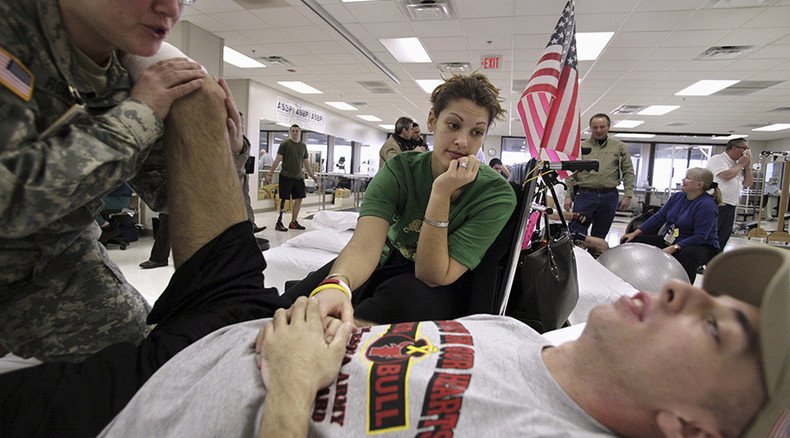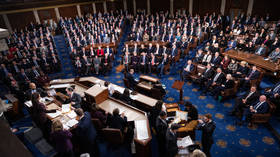Veterans Administration to outsource medical services for veterans’ care

The Veterans Administration has unveiled an ambitious plan to merge and expand the department’s private health care arrangements in order to meet growing demand from Iraq and Afghanistan war veterans, as well as aging Vietnam War vets.
The VA’s plan, called the New Veterans Choice Program, will merge services into a single system to eliminate gaps in care.
“We cannot provide every [medical] service in every location to every single veteran,” Baligh Yehia, the VA’s assistant deputy undersecretary, told congressional lawmakers on Wednesday. “This doesn’t mean we’re outsourcing VA or dismantling VA. We want a complementary system. VA will still provide foundational services.”
Debate over outsourcing veterans care could pop up VA looks to revamp private care for veterans in ambitious plan https://t.co/ndcckl3QRe
— Lisa Rein (@Reinlwapo) November 18, 2015Under the new program, veterans can go to private doctors if they live too far from a VA hospital or need a specialist, or if they cannot get an appointment with a VA physician within 30 days. The program is designed to reduce wait times and eliminate gaps in care created by a bureaucracy that has obstructed veterans’ access to care.
“Where it makes sense to outsource, believe me, we’re going to move in that direction,” Deputy Secretary Sloan Gibson said, as reported in the Washington Post.
Gibson admitted to lawmakers that the government’s network of private doctors, available to veterans at taxpayer expense, is “too complicated” for veterans, physicians, and VA employees. Under the current program, about 10 percent of medical appointments are private and there are varying degrees of reimbursement for doctors, emergency rooms, and nursing homes.
Lawmakers from both parties are concerned about the cost of the overhaul. The VA projects it will need $1.2 billion to $2.4 billion in each of the first three years of the overhaul, plus an additional $2 billion a year to meet expanded access to emergency services and urgent care. Officials said the money will be necessary to meet a surge in demand when veterans have better access and shorter waiting periods to see outside doctors.
If the #VA needs a "bigger budget" why are employees under investigation receiving bonuses? https://t.co/3OSiS8e4Xfpic.twitter.com/sKIRnN4zWW
— Concerned Vets MN (@CVAMinnesota) November 17, 2015Conservatives favor more private care and outsourcing as a less costly option to keeping veterans entirely within the VA system, which involves more overhead, while liberals believe the government is better at caring for veterans.
“The culture for now has been for VA to do it themselves and only contract out in emergencies or exceptional situations,” Philip Carter, an Iraq veteran and senior fellow at the Center for a New American Security, told the Washington Post.
In 2014, Congress passed a $10 billion overhaul bill for the VA to develop the Care in the Community Program, which gave vets a card to see private doctors. The program was swamped with requests and the VA had to raid other parts of its budget for funds. It ultimately requested and received an additional $6 billion to fund the program through October 2015.
The new plan comes as the VA continues to endure fallout from a series of scandals and scathing criticism from lawmakers, veterans, and whistleblowers over the shoddy level of care it provides for veterans. The Office of the Inspector General found in September that the department had a massive backlog of nearly 900,000 healthcare applications waiting to be approved and that more than 300,000 veterans had died waiting for approval.
VA hospital threw patient files in trash, kept quiet about it http://t.co/qfcVyGBNYApic.twitter.com/BBQ32h7CWD
— RT America (@RT_America) August 4, 2015In August, a Veterans Affairs hospital in North Dakota was discovered to have dumped the personal data of 1,000 veterans during an office move and waited two months to inform veterans. The agency said the files, which included names, social security numbers, phone numbers, and addresses, had been thrown out by mistake, but were luckily received by an employee.
In 2014, whistleblowers in Phoenix revealed the VA hospital there had manipulated waiting lists, which caused the deaths of seriously ill veterans. An agency report linked 23 of the reported 40 deaths in multiple states to delayed treatment.
35% of backlogged VA healthcare applicants died waiting for benefit approval
http://t.co/682x5J7L9Vpic.twitter.com/NUiXYQfdj2
— RT America (@RT_America) September 3, 2015The VA provides $95 billion worth of entitlements each year, including healthcare, education and training, disability money, pensions to veterans and their surviving spouses, and burial benefits. According to the agency’s own figures from 2008, of the 24.3 million total military veterans, only 8.5 million (36 percent) were receiving benefits and services.












